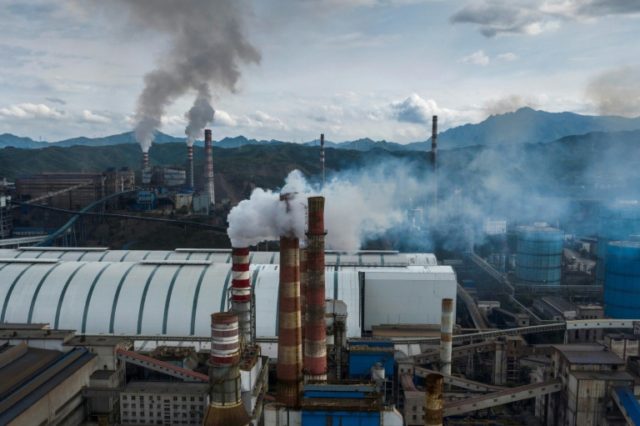Beijing (AFP) – China’s economy showed more signs of strain Monday as the country published weak data for industrial output, investment and retail sales, amid a lingering trade war with the United States.
Industrial output grew by 4.4 percent year-on-year throughout August, falling to its lowest level in 17 years and down from 4.8 percent in July.
The figure was well below analyst expectations, with a Bloomberg survey of analysts predicting heartier growth of 5.2 percent.
“We must be aware that international instabilities and uncertainties are increasing significantly, and that at home economic structural issues are still prominent and the downward pressures on (the) economy are mounting,” said Fu Linghui, a spokesman for the National Bureau of Statistics, which released the data.
Retail sales also slipped to post growth of 7.5 percent — 0.1 percent down on the previous month and a knock to Beijing’s aims to boost domestic consumption.
Investment in fixed assets saw year-on-year growth of 5.5 percent in the first eight months of the year, 0.2 percent less than the first seven months, including a slight dip in crucial real estate investment.
All three sets of data fell short of analyst expectations, with Bloomberg predicting 7.9 percent growth in retail sales and 5.7 percent growth in investments.
China’s gross domestic product (GDP) growth slowed to 6.2 percent in the second quarter of the year — the weakest pace in almost three decades.
“For China to maintain growth of 6.0 percent or more is very difficult against the current backdrop of a complicated international situation and a relatively high base, and this rate is at the forefront of the world’s leading economies,” Chinese Premier Li Keqiang was quoted as saying in an interview with Russian media which was published on the Chinese government’s website.
The People’s Bank of China said earlier this month that it would cut the amount of cash lenders must keep in reserve, in a bid to release more money into the stuttering economy.
“With a strong rebound unlikely any time soon, we anticipate that policymakers will ease monetary conditions further in the coming months,” said Martin Lynge Rasmussen, China Economist at Capital Economics.
Washington and Beijing, meanwhile, have extended olive branches ahead of trade war talks next month, with the US delaying a new round of tariffs by two weeks and China exempting some products from punitive duties.

COMMENTS
Please let us know if you're having issues with commenting.